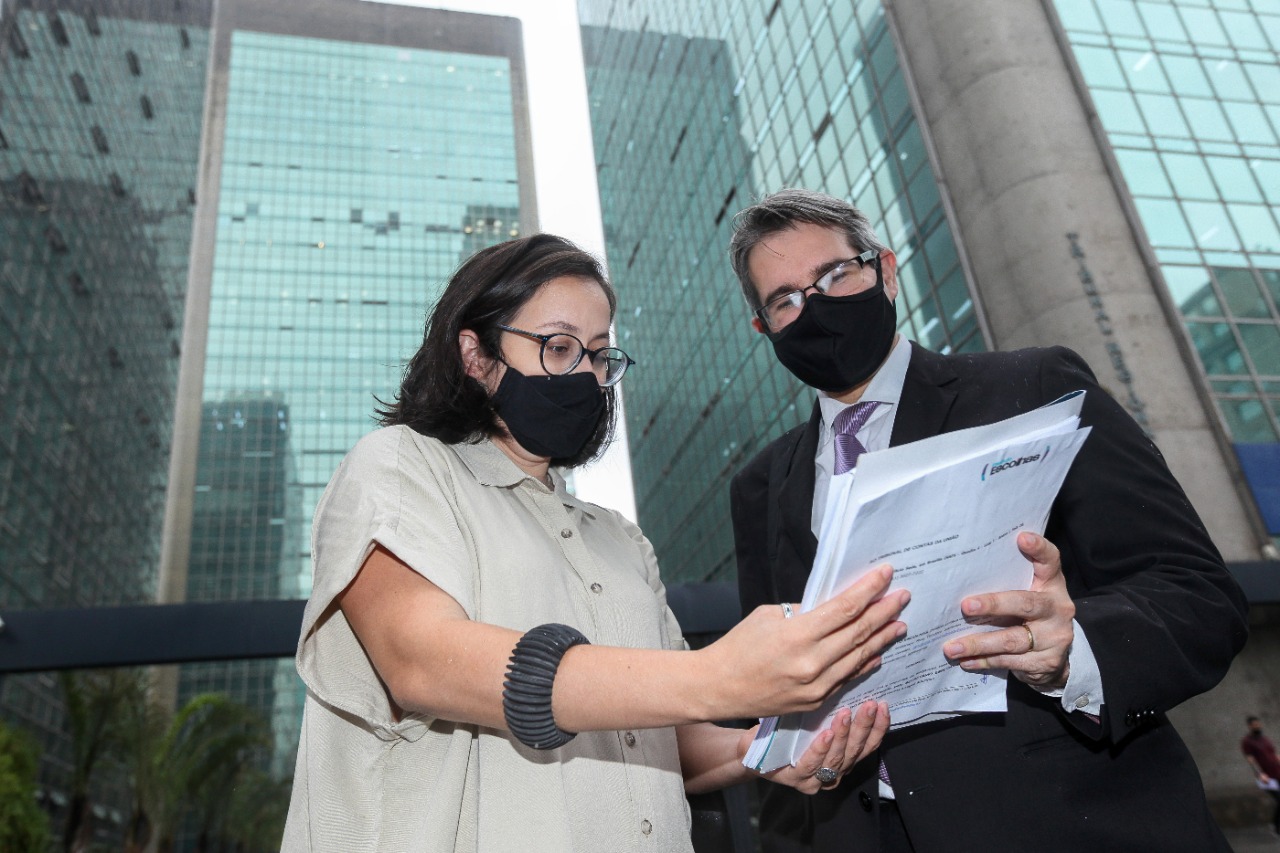Escolhas asks the Federal Audit Court (FAC) to send the Federal Revenue Service to update the collection of the Rural Property Tax (RPT)

Brazil fails to collect R$ 14 billion a year due to the lack of updates to the RPT table, which would cover one month of emergency aid for 47 million Brazilians
Instituto Escolhas has filed a request, based on the Fiscal Responsibility Law (LRF), for the Federal Audit Court (FAC) to determine the immediate update, by the Federal Revenue Secretary, of the “minimum income rates for livestock,” the base amount for the collection of the Rural Property Tax (RPT). These indexes are the same as 40 years ago, and their update would raise the collection of the RPT to R$ 14.3 billion annually–almost 10 times more than the amount collected in 2018, which totalled only R$ 1.5 billion. At a time when the government is struggling without knowing where to obtain resources to tackle the pandemic, that money would pay for a month of emergency aid, to the tune of R$ 300.00 for 47 million Brazilians. The lawsuit, which was delivered to the FAC headquarters in São Paulo last Friday (10/09), had legal counsel from lawyers Eduardo Fleury and Rodrigo Lázaro, from the law office of Fleury, Coimbra & Rhomberg (FCR Law).
Escolhas’ request was based on the Fiscal Responsibility Law (FRL), which establishes precisely that responsible fiscal management is achieved through the effective collection of taxes provided for by law. By failing to update the amounts for which the RPT is charged, the Revenue Service fails to meet this requirement, which leads the country to lose revenue. It is up to the FAC, as a body tasked with controlling public accounts, to monitor compliance with the FRL and to determine the solution to this problem.
To Jaqueline Ferreira, Project Manager at Instituto Escolhas, given the country’s economic crisis and dramatic fiscal situation, the FAC should act in the interest of the population by urgently determining that the Revenue Service immediately update RPT collection. “The secretary is silent because he does not update the table, which generates an unacceptable loss of revenue to public coffers at this moment the country is living through.”
The Livestock Assignment Table, which establishes the minimum productivity indexes for rural activity, has not been updated since 1980. Since the RPT legislation allows up to 100% of its revenue to be allocated to municipalities, this means that the Federal Government is failing to allocate more resources to help cities across the country. A simulation carried out by the study “Rural Property Tax: tax justice and tax incentives,” by Instituto Escolhas, proposes that, if the table were updated, the average value of cattle per hectare would increase from the current 0.56 to 1.37 heads per hectare, which entails considering that the productive capacity of land has increased by two and a half times since 1980.
In 2018, the year of data used by the study, which was launched in 2019, the country’s five million rural properties contributed R$ 1.5 billion in RPT (less than 0.1% of the federal government’s tax revenue). That same year, the municipality of São Paulo alone collected R$ 9.94 billion from urban properties, in the form of Land and Urban Property Tax (LUPT).
The collection of RPT should be compatible with the economic capacity of agribusiness, one of the most relevant sectors in our economy, accounting for 23% of the country’s GDP in 2017. Brazilian agricultural production grew more than four times between 1975 and 2016, according to information from the Ministry of Agriculture, which may have contributed to the appreciation of land prices, which increased by 308% between 2002 and 2013. Only the bases for charging RPT have not changed since 1980.
Read the full lawsuit (in Portuguese): Denúncia Escolhas_açãonoTCU-Receita Federal.out2020
The study
“Rural Property Tax: tax justice and environmental incentives” outlines three possible scenarios in which it estimates an increase in the collection of RPT to R$ 5.8 billion in scenario 1, when land market value is used as a basis for calculating the Value of Undeveloped Land to collect the RPT, keeping the current legislation, which would already be R$ 4.3 billion more than the RPT collected in 2018; to R$ 14.3 billion in scenario 2, in which–in addition to revising the Value of Undeveloped Land–it adopts a new Livestock Assignment Table, which would be 12.8 more than the last collection; or (scenario 3) the total of 16.8 billion, in which more is collected, adopting the two previous measures and a new economic formula to calculate the tax, which corrects distortions in the collection, a scenario that would generate a gain in relation to that of last year, at R $ 15.3 billion. In other words, across all three scenarios, Brazil would start to collect more RPT than it does today, which would be essential for municipal governments, since at least 50% of the RPT revenue is allocated to the municipalities where the property is located.
The study was coordinated by Jaqueline Ferreira, Sergio Leitão and Natalia Nunes Ferreira Batista and produced by Bernard Appy, Carlos Mares and GeoLab / GPP Team (USP / Esalq) / Entropix Engineering: Alberto Barretto, Arthur Nicolaus Fendrich, Carlos Mário Guedes de Guedes, Gerd Sparovek, Rodrigo Fernando Maule, Roger Augusto de Camargo, Sergio Paganini Martins.
Related
Brazil attended COP-6 in Minamata without presenting an action plan to address mercury usage in mining
Study shows 2,274% increase in herbicide use for soybean production
Technical assistance is prevalent in legal regulations and public policies; however, a study indicates that it does not adequately reach rural producers
Study reveals Brazil applies pesticides and fertilizers inefficiently and unsustainably in soybean farming

 Texto
Texto